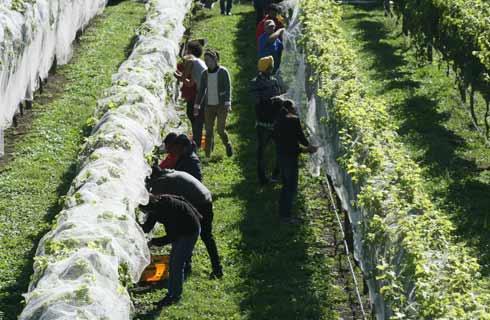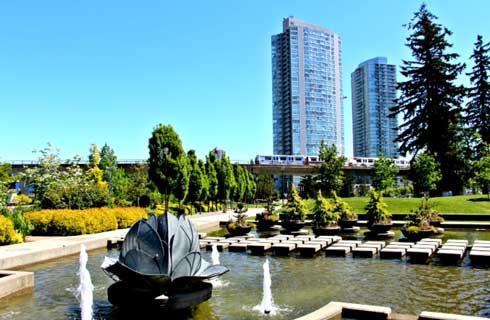农业科学学士-植物科学
Bachelor of Science in Agriculture - Plant Science

学历文凭
Bachelor Degree

专业院系
Faculty of Agriculture

开学时间

课程时长

课程学费

国际学生入学条件
IDP—雅思考试联合主办方

雅思考试总分
6.5
- 雅思总分:6.5
- 托福网考总分:90
- 托福笔试总分:160
- 其他语言考试:IELTS - Overall score of 6.5 with minimum Bands score of 6.0. TOEFL iBT - Overall score of 90 with minimum Bands score of 20.
CRICOS代码:
申请截止日期: 请与IDP联系 以获取详细信息。
课程简介
When you study Plant Science at Dalhousie youll gain a solid understanding of the ideas and methods used in biological physical and behavioural sciences. Youll acquire a very sound knowledge of plants along with practical and life-long learning skills all while studying at Dalhousies beautiful Agricultural Campus in Truro N.S. Plant Science will give you the knowledge and skills to research and investigate real-world problems associated with food security quality and wellness. Youll also dive into contemporary issues related to environmental integrity biotechnology plant breeding sustainable crop production and more.You will learn both the theory and practices related to the study of plants and their production. Your studies may lead you to expertise in many sub-disciplines such as fruit vegetable ornamental or field crops. You may focus on the genetics or physiology of plants or learn how to manage different types of farming systems.In your first year of study youll take foundation-building science courses in biology chemistry calculus and agricultural ecosystems and microeconomics. In your upper years youll study more in-depth subjects such as structural botany entomology plant pathology and soil fertility and nutrients. Students can tailor their degree to their personal interests by choosing from numerous electives. The program also includes production courses which provide students with opportunities to gain knowledge and skills focused on areas of production such as greenhouse and floriculture forages and cover crops organic field crop management plus many others. A complete list of these production courses is provided in academic calendar.
相关申请
 预科
预科 奖学金
奖学金 实习机会
实习机会 在校学习
在校学习 跨境学习
跨境学习 校园授课-线上开始
校园授课-线上开始 在线/远程学习
在线/远程学习
开学时间&学费
学费信息仅供参考,请与IDP联系以获取详细信息
| 开学时间 | 时长 | 学费 | 地点 |
|---|
学校排名

世界排名251
数据源:
泰晤士高等教育世界大学排名
关于达尔豪斯大学

达尔豪斯大学以其有意义的教学、创新研究和社会责任感而闻名,激励有志于在全球范围内为现实世界做出贡献的学生。达尔豪斯大学位于加拿大风景秀丽的东海岸,在新斯科舍省海滨首府哈利法克斯拥有三个校区;在新斯科舍省特鲁罗拥有一个农业校区;在新斯科舍省雅茅斯和新不伦瑞克省圣约翰拥有两个专业校区。达尔豪斯大学拥有来自全球115多个国家的21000多名学生和研究人员。国际学生受到新斯科舍省热情友好的当地居民的欢迎,大学通过整个学年的迎新活动帮助新移民融入当地文化和习俗。达尔豪斯大学位列加拿大12 所最佳大学(泰晤士高等教育世界大学排名),是新斯科舍省领先的研究型大学。达尔豪斯大学将开创性的研究与卓越的教学相结合,帮助学生实现学术目标,同时对世界产生积极影响。除了300多个课程项目外,大学还为学生提供与学术界和业界合作伙伴组织的专业联系。这些国际联系为学生提供了建立专业人脉和参与工作项目的独特机会。达尔豪斯大学致力于保持包容性卓越,这体现在大学活动的各个层面,即倡导平等、多样性、包容性和可及性(EDIA)。达尔豪斯大学肩负着解决系统性不平等的责任,不懈努力地帮助来自不同背景的学生发挥其独特的潜力并享受未来的职业成功。
本校相关课程
其他相关课程

植物科学哲学博士
 曼尼托巴大学
曼尼托巴大学学历文凭
Ph.D.
开学日期
课程费用总额


植物科学理学硕士
 曼尼托巴大学
曼尼托巴大学学历文凭
Masters Degree
开学日期
课程费用总额


植物科学理学硕士
 不列颠哥伦比亚大学
不列颠哥伦比亚大学学历文凭
Masters Degree
开学日期
课程费用总额


植物科学哲学博士
 不列颠哥伦比亚大学
不列颠哥伦比亚大学学历文凭
Ph.D.
开学日期
课程费用总额


安大略大学花艺设计证书
 圣力嘉学院
圣力嘉学院学历文凭
Bachelor Degree
开学日期
课程费用总额


植物健康园艺学学士学位
 昆特仑理工大学
昆特仑理工大学学历文凭
Bachelor Degree
开学日期
课程费用总额
















